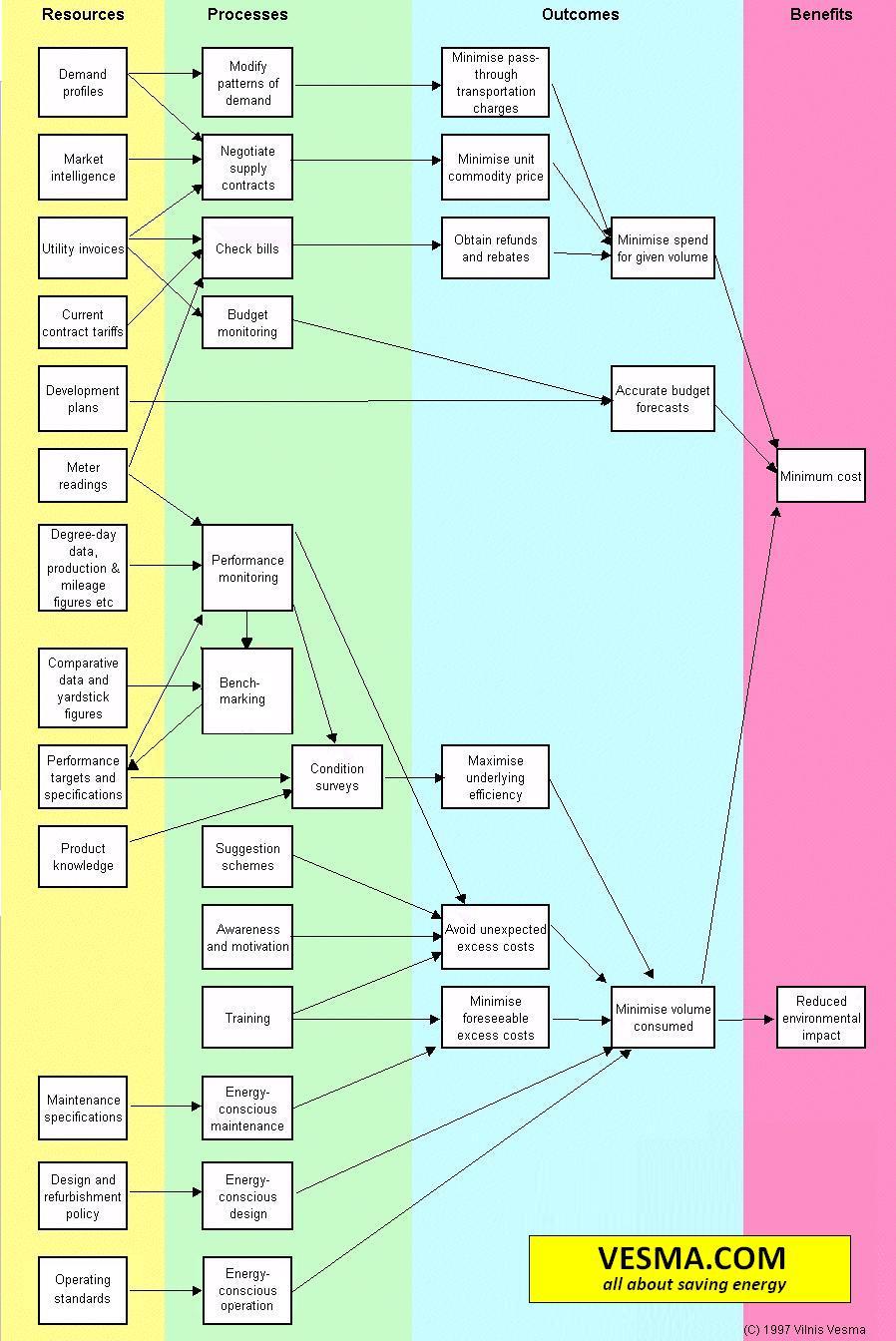Management and methods...
The utility management process
 Click image for full-sized view
Click image for full-sized view
Attitude surveysEmployee attitude surveys are an essential first step towards engaging people in low-cost and no-cost energy-saving measures. The diagram on the right, taken from a recent project, shows that staff at the factory in question were overwhelmingly concerned with health and safety while energy enjoyed a very low priority. The case history explains how this diagram suggested ways of raising its profile.It also illustrates how a survey can provide surprising insights, in this case not just into what would motivate people, but also what would have been a waste of money. 21 Apr 2006 |
 |